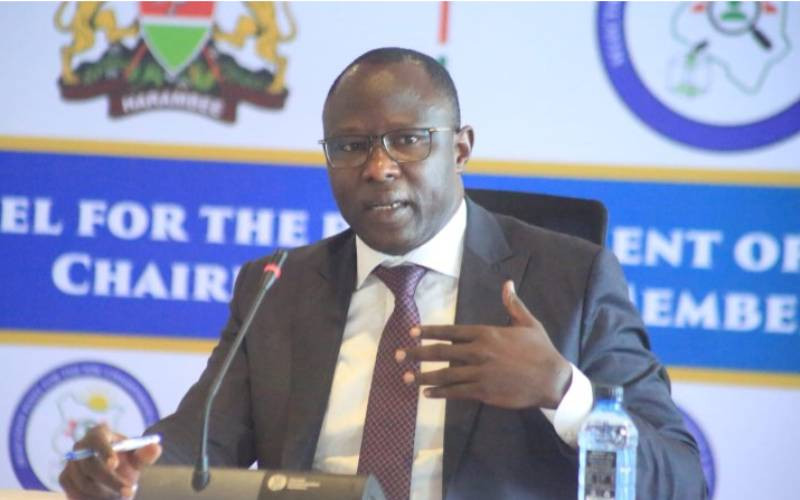
President Ruto Nominates Erastus Ethekon as Next IEBC Chairperson » Capital News
NAIROBI, Kenya May 8 – President William Ruto has nominated Erastus Edung Ethekon as the new Chairperson of the Independent Electoral and Boundaries Commission (IEBC), following recommendations from the Selection Panel overseeing the recruitment of the new electoral body.
The President also nominated six individuals to serve as members of the Commission: Ann Njeri Nderitu (Nyandarua), Moses Alutalala Mukhwana (Kakamega), Mary Karen Sorobit (Uasin Gishu), Hassan Noor Hassan (Mandera), Francis Odhiambo Aduol (Kisumu), and Fahima Arafat Abdallah (Lamu).
The Selection Panel had submitted two names for the Chairperson position and nine for the six Member positions. Based on these recommendations, the President made the nominations, which have been forwarded to the National Assembly for consideration and approval in accordance with the Constitution, the IEBC Act, and the Public Appointments (Parliamentary Approval) Act.
However, prominent figures such as former East African Court of Justice legislator Charles Nyachae and former Registrar of the Judiciary Ann Amadi did not make the final list. Just this week, a poll by research firm TIFA had named Amadi as the most preferred candidate for the chairperson’s position, with Nyachae ranked as the most popular overall.
According to the TIFA report released on Wednesday, 41% of Kenyans expressed a preference for Amadi to lead the electoral body, with most of her support concentrated in Nairobi and Nyanza regions. Charles Nyachae followed closely with 23% support, while Ethekon garnered 15% and Abdulqadir Ramadhan 12%.
“Ramadhan and Ethekon may have influence in specific zones but lack national appeal,” TIFA noted in the report, which found only four candidates had been shortlisted and presented to the President for consideration.
The poll further revealed demographic and regional dynamics. Respondents aged 18 to 34 (44%) were more inclined to support Amadi, while older respondents, aged 35 and above, leaned more towards Nyachae. Many who backed Amadi cited gender representation and her regional background, while those who preferred Nyachae did so on grounds of qualifications and experience.
On the question of qualifications, 56% of respondents favoured Nyachae, while 40% preferred Ramadhan, 32% Ethekon, and 25% Amadi. On perceived impartiality, Ramadhan ranked highest at 38%, followed by Ethekon (30%), Nyachae (24%), and Amadi (18%).
Despite the appointments, public confidence in the recruitment process remains shaky. TIFA found that 55% of Kenyans are not confident that the vetting was merit-based, citing long-standing concerns over the credibility of electoral processes. “Those who believe previous elections were fair tend to trust the current process, while those who view past elections as flawed express deep skepticism,” the report said.
The IEBC chairperson and commissioner positions became vacant on January 16, 2023, when former Chair Wafula Chebukati and commissioners Abdi Guliye and Boya Molu concluded their six-year terms. The commission was further rocked by internal strife following the disputed 2022 presidential election, leading to the resignation or dismissal of Vice Chair Juliana Cherera and commissioners Irene Masit, Justus Nyang’aya, and Francis Wanderi.
The four, collectively known as the “Cherera Four,” rejected the presidential election results announced by Chebukati, claiming the final tallies were not transparently verified. They were later accused of colluding with senior Azimio la Umoja operatives to influence the outcome in favour of Raila Odinga.
The National Assembly is now expected to begin vetting the nominees before they can be formally appointed to steer the country’s electoral reforms ahead of the next general election.